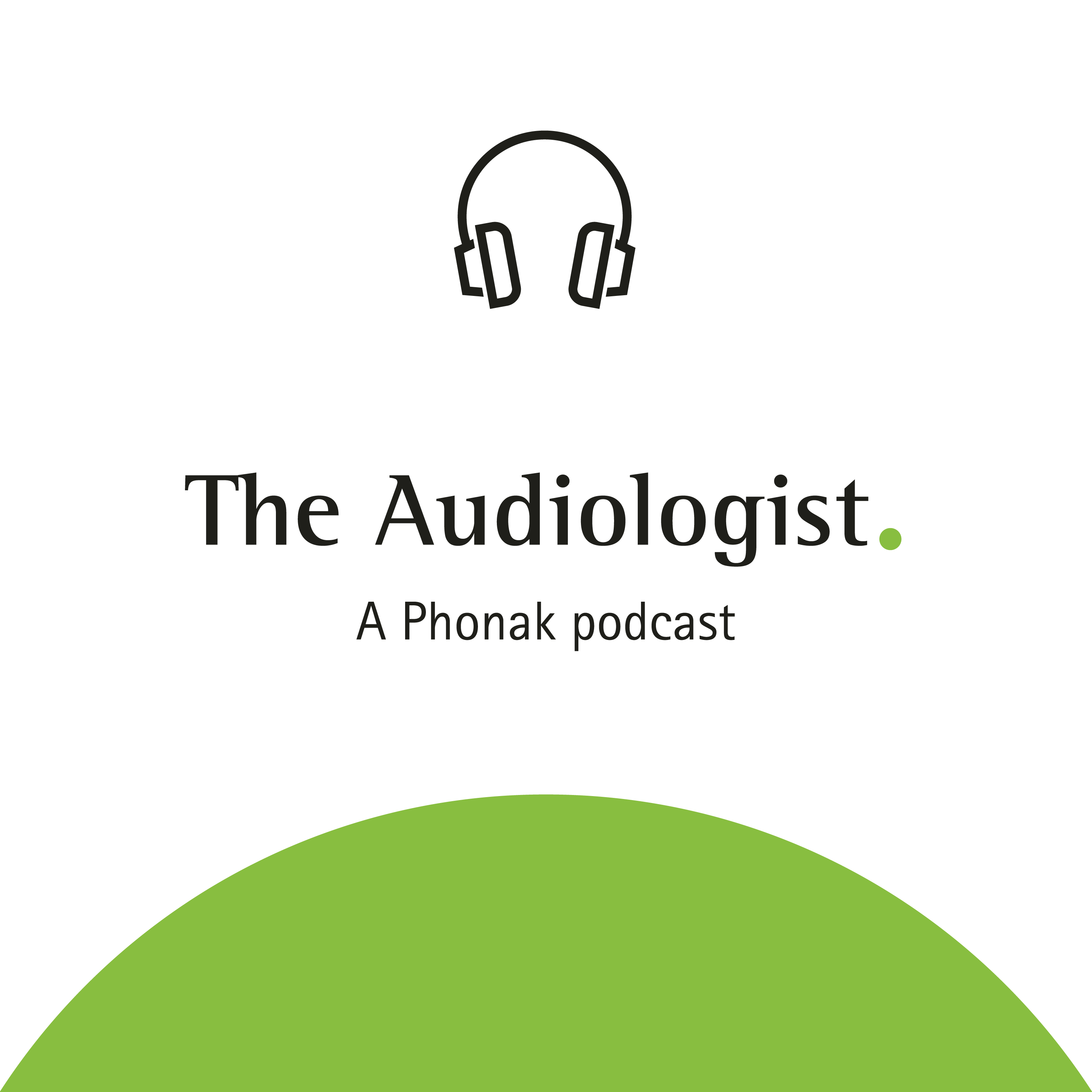Phonak Cognitive Well-Being
Phonak encourages a shift in the narrative from focusing solely on audibility to emphasizing the holistic benefits of hearing care, with a particular focus on the relationship between hearing health and cognitive health. Hearing care professionals play a vital role to enable clients to understand the link between hearing, cognitive health and overall well-being.
Cognition news

Results of the ENHANCE study after 3 years of hearing aid use
New results compared the cognitive performance of a group of new hearing aid users and a group of non-users over 3 years at 18-month intervals.

The Social Cure: Improving the health and well-being of your patients
Why including family in hearing healthcare can help your clients benefit from the “social cure.”’

Bringing the topic of hearing loss and cognition into clinical practice
Sonia Cuero, Au.D., shares three tips for educating clients about the link between hearing loss and cognition.

Achieving optimal outcomes: Insights from the ACHIEVE Study audiologists on treating hearing loss in older adults
Explore key findings from the ACHIEVE Study and learn practical strategies to support your clients in their journey toward better hearing health.

New guideline supports your clients’ cognitive health
Experts in cognition and hearing contributed to an evidence-based guideline that promotes hearing and cognitive health in audiologic rehabilitation.

ECHHO Program
The Enhancing Cognitive Health with Hearing Optimization (ECHHO) program aims to equip hearing care professionals with resources to better integrate the topic of cognitive health into their discussions with clients.
The ECHHO program also provides a Clinical Enablement toolkit, containing multiple assets such as a leaflet, posters, conversation starters and social media posts among others. These can all be applied in the clinic and online to attract new clients and foster conversations.
Contact your local Phonak representative to learn more.

The connection of hearing loss and cognitive health
Phonak supports research and innovation in hearing healthcare. We are committed to driving evidence in the field of holistic hearing care and healthy aging.
Two recent studies, ACHIEVE (Aging and Cognitive Health Evaluation in Elders) and ENHANCE (Evaluation of Hearing Aids and Cognitive Effects) incorporate longitudinal observations, best practice audiological management, randomized control hearing interventions and comprehensive cognitive assessments to provide more insight into the relationship between hearing loss and cognition.
Both studies were supported by Sonova’s research program and an in-kind donation of Phonak hearing aids.
Resources
The ACHIEVE study, a major randomized controlled trial investigating if treating hearing loss in older adults could reduce the loss of thinking and memory abilities (cognitive decline) that can precede dementia.
This comprehensive study not only focuses on cognitive decline, it also looks other crucial health aspects, such as brain health, mental well-being, physical function, and healthcare utilization.
Main results, published in the Lancet in 2023, showed that in older adults at increased risk for cognitive decline, hearing intervention slowed down loss of thinking and memory abilities by 48% over 3 years1.
Highlights
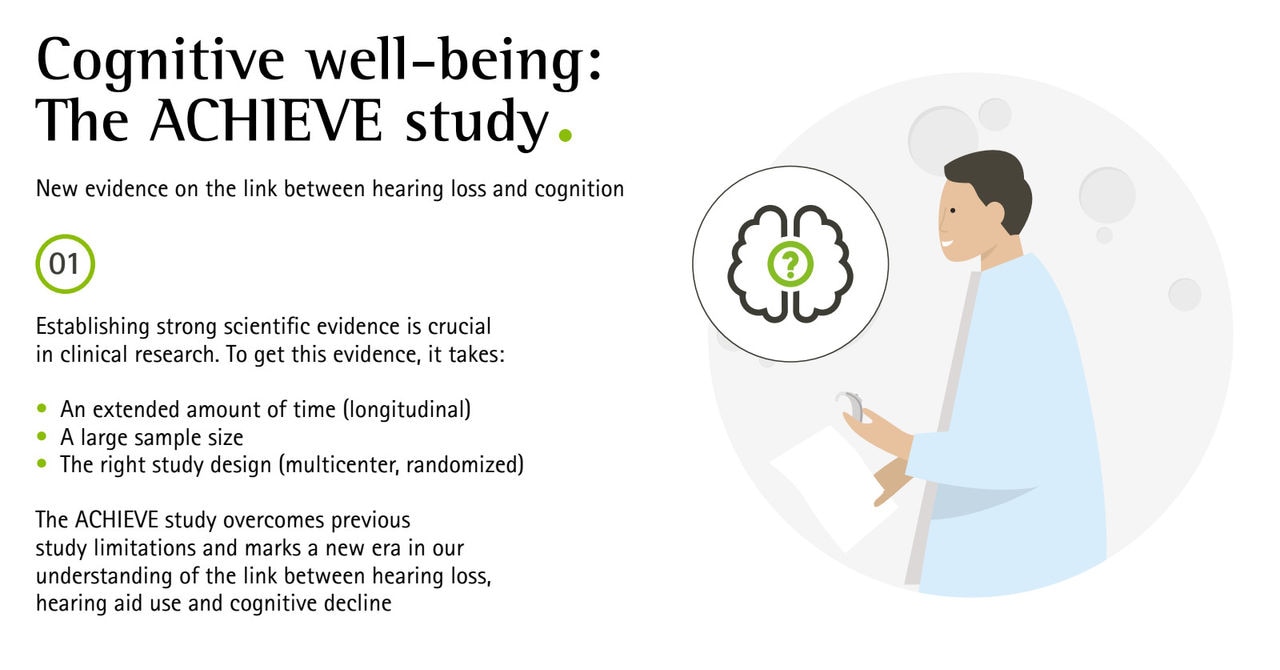
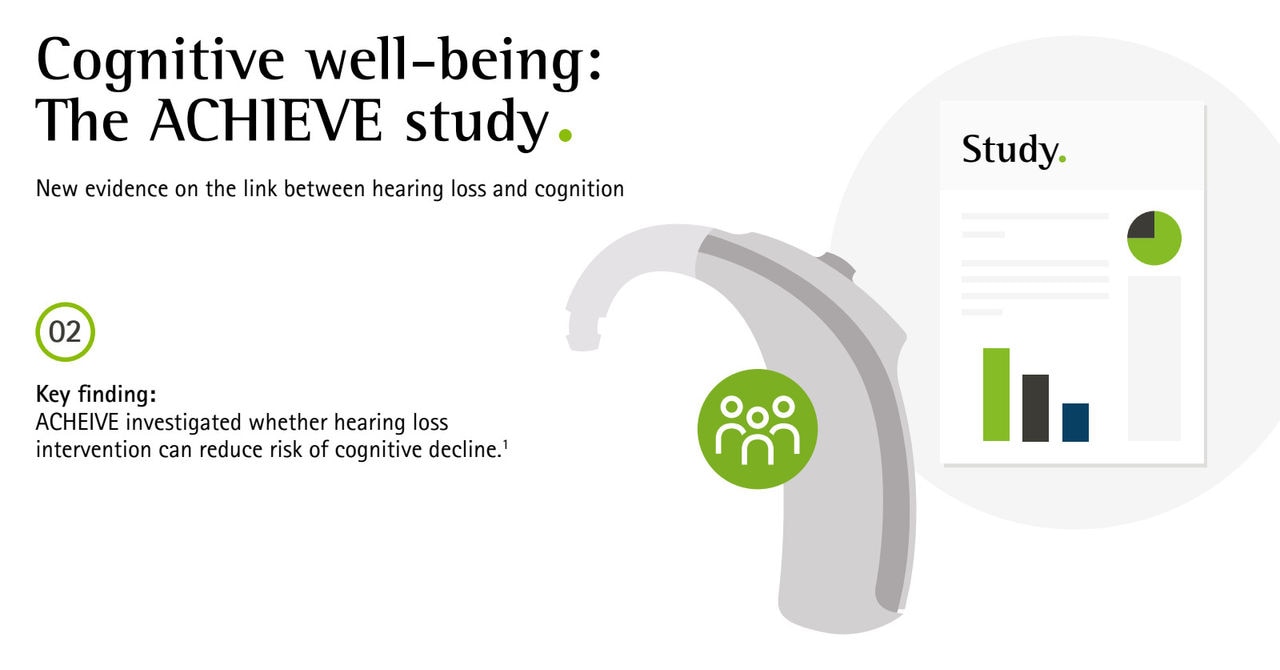
In the ENHANCE study, 160 participants who received hearing intervention, including hearing aid fitting, were followed up for 3 years and their performance on a computerized battery of cognitive tests was compared to 102 participants of the Australian Imaging Biomarker & Lifestyle Study of Ageing (AIBL) who did not receive hearing intervention.
The ENHANCE study is led by Principal Investigator Professor Julia Sarant, PhD from the University of Melbourne. 3
Highlights
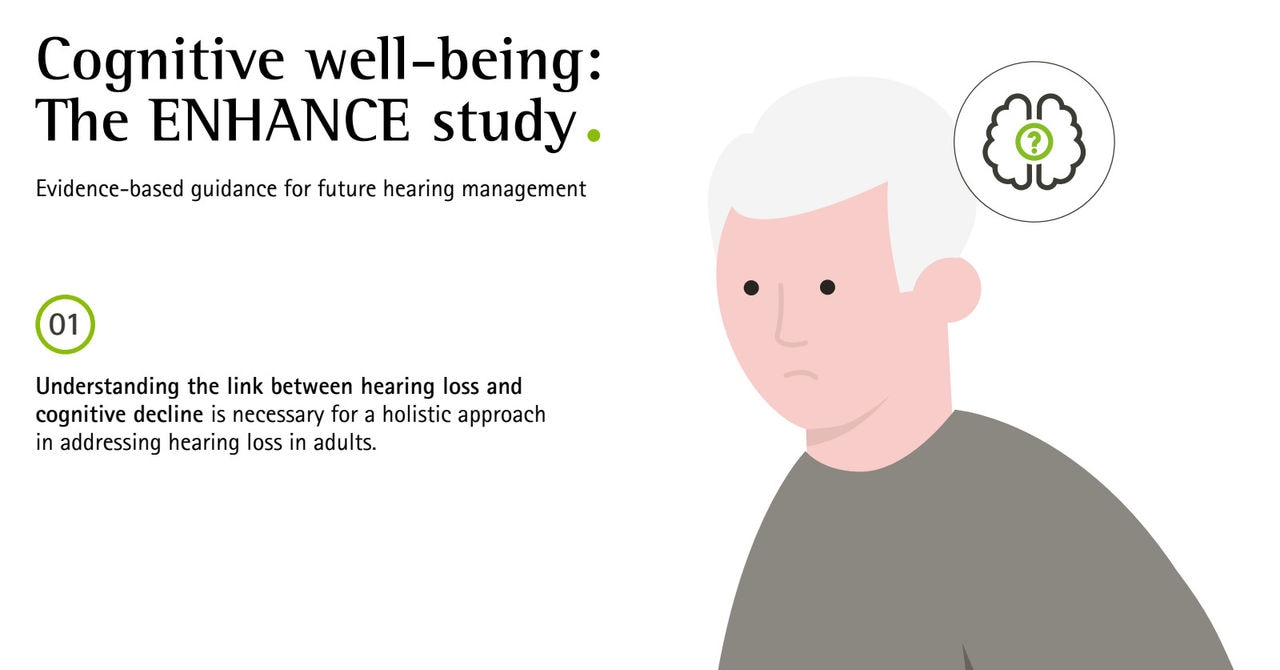
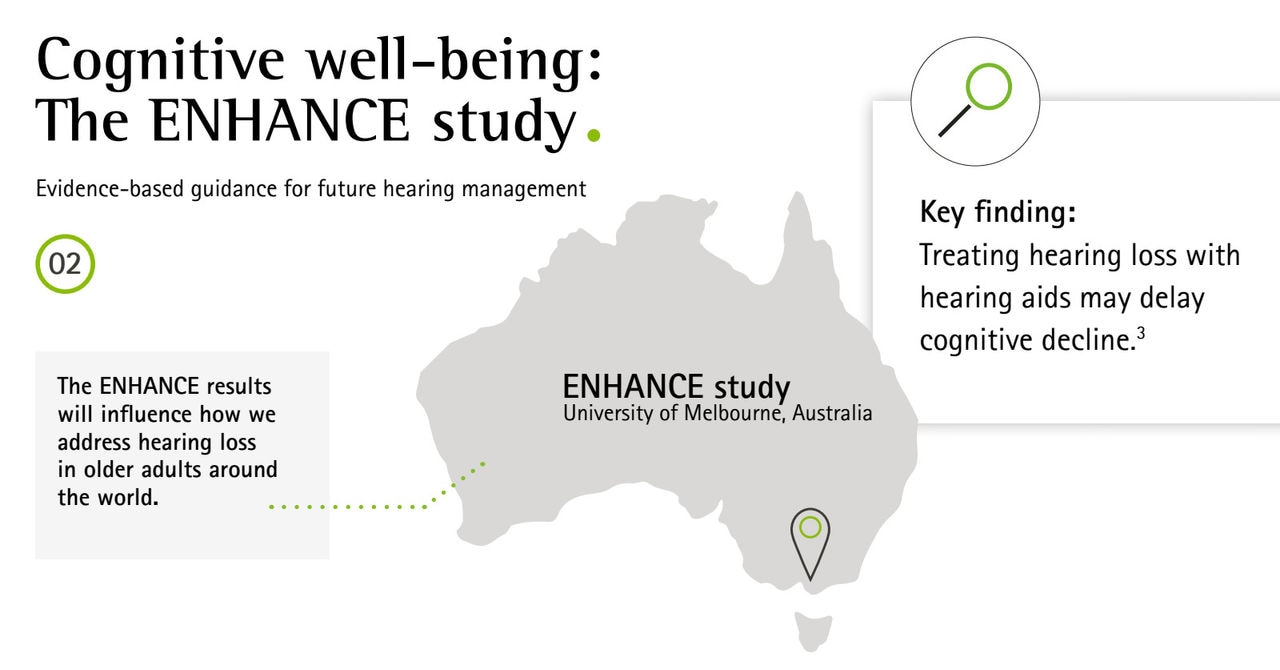
Effect of hearing intervention on three‐year change in brain morphology
New horizons in holistic, person-centred health promotion for hearing healthcare
Social-emotional well-being and adult hearing loss: clinical recommendations
Hearing intervention versus health education control to reduce cognitive decline in older adults with hearing loss in the USA (ACHIEVE): a multicentre, randomised controlled trial.
Lin, F., et al. (2023, July 17)
Promoting hearing and cognitive health in audiologic rehabilitation for the well-being of older adults.
Sarant, J. et al. 2023
Podcasts
The research landscape is constantly evolving, with more studies shedding light on the connection between hearing loss, social engagement and cognition. Listen to “The Audiologist” to stay up to date.
Footnotes
1. Lin, F., et al. (2023, July 17). Hearing intervention versus health education control to reduce cognitive decline in older adults with hearing loss in the USA (ACHIEVE): a multicentre, randomised controlled trial.
2 . Sarant, J.Z., Busby, P.A., Schembri, A.J., Fowler, C. & Harris, D.C. (2024). ENHANCE: a comparative prospective longitudinal study of cognitive outcomes after 3 years of hearing aid use in older adults. Frontiers in Aging Neuroscience;15:1302185. doi: 10.3389/fnagi.2023.1302185.

